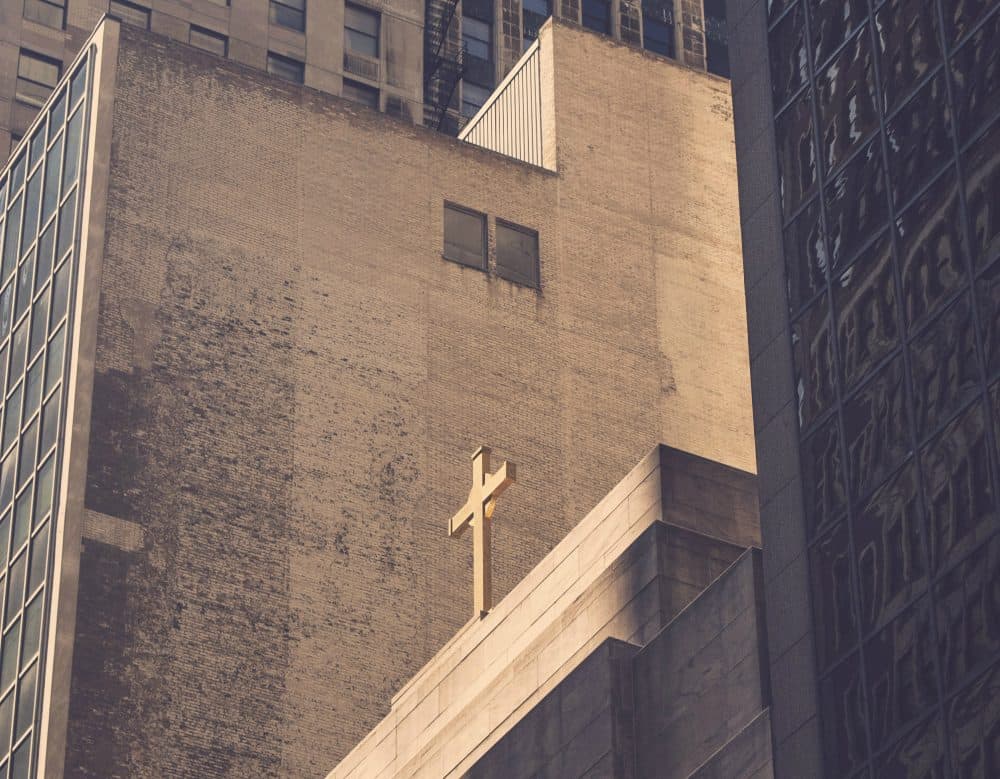Advertisement
Subsidizing Faith: Should Churches Be Taxed?

It’s hard to imagine, but an American president once advocated taxing God’s property. In 1875, Ulysses Grant was besieged by favor-seeking churches. Catholics wanted government subsidies for parochial schools, while Protestant evangelicals lobbied for a constitutional amendment affirming God’s existence and Jesus Christ as savior. Grant thought taxation would draw a needed line between church and state.
His gambit failed, but those who share his philosophy still preach the idea. It won’t happen anytime soon; even in Massachusetts, where state Rep. David Nangle may propose exposing large nonprofit groups to local property taxes, he’ll probably exempt religious groups, said a spokesman.
...it’s not the taxpayers’ obligation to subsidize every hue of faith.
That’s a shame. These days, as churches try to recruit the Pokémon Go fanatics playing the cyber-game on their premises, collection baskets might have some extra money. There are sound grounds for making them put it toward property taxes on their houses of worship.
I hope that last statement doesn’t draw lightning bolts from on high; we’re talking about a venerable tradition. Nonprofits, including churches, long have been spared property taxes and state income taxes. Starting in 1894, federal law exempted them from Uncle Sam’s corporate excise and income taxes. God knows the federal tax code in particular is larded with unjustified subsidies to for-profit, corporate America. But the breadth of breaks to religions also takes the breath away.
Nonprofits have argued that since they provide services the state otherwise would have to furnish (such as schools), a tax break is only fair. Agreed. But actual churches, for worship, don’t meet that standard. The Roman Catholic Archdiocese of Boston shuttered many churches in recent years; neither the city nor the commonwealth has replaced them with government-run ones.
A churchgoer myself, I’m no religion-damning radical. But the arguments for tax favoritism are so mushy and contradictory that you marvel advocates keep a straight face making them. Hard core anti-taxers claim that exemptions aren’t subsidies at all, but merely allow churches to keep their own money. Of course, when everyone else on the block but you pays taxes, you’re receiving a subsidy as surely as if the government wrote you a check, which is why economists call tax breaks, at least on the federal level, “tax expenditures." They spare politicians from having to seek politically difficult, direct public subsidies to groups.
One opponent asserted that nonprofits earn their exemptions by providing vital “community benefits." Yet as the interviewer in that previous link noted, taxpaying for-profits offer vital community benefits, too, from jobs to philanthropy. Some religious opponents of taxation fear the government could cudgel churches that dissent from civil law — say, by refusing to perform gay marriages — by yanking their tax exemption. They cite Bob Jones University, which lost its exemption in 1983 for promoting racial discrimination. But a blanket repeal of property tax exemptions for all houses of worship neither singles out any denomination nor punishes any for their views.
If the only thing keeping some churches open is a taxpayers’ subsidy, it would seem the wall between church and state has big cracks.
Some argue that going untaxed is necessary for religious freedom, as if a taxpayer handout is the only thing enforcing the First Amendment’s establishment clause. A liberal priest, writing in The New York Times, went even further. Urban, progressive parishes like hers need the exemption to remain open and promulgate their religiously grounded liberalism, she said, while wealthier, conservative suburban parishes don’t. But it’s not the taxpayers’ obligation to subsidize every hue of faith. As one atheist suggested, if a church can’t afford property taxes, it probably shouldn’t own property.
That priest’s argument shows how far we’ve come from a 1970 Supreme Court case that upheld religious exemptions as “only a minimal and remote involvement between church and state.” If the only thing keeping some churches open is a taxpayers’ subsidy, it would seem the wall between church and state has big cracks.
